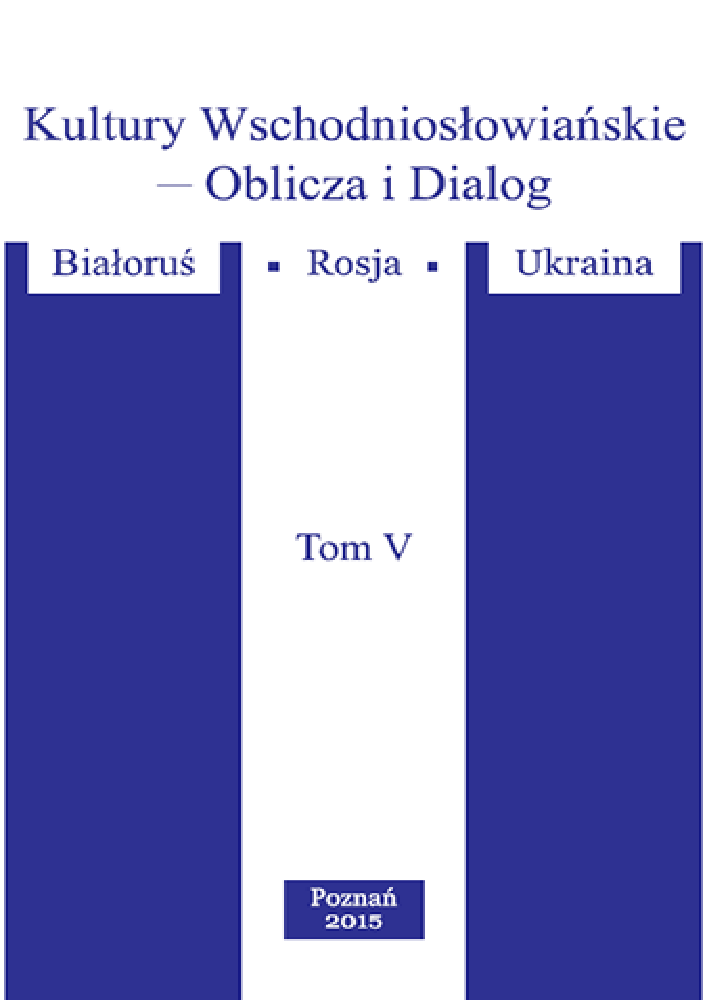Abstrakt
Contemporary Europe stands before the challenge of rethinking its own experience of totalitarian past with its many blank pages, which are highly important for modern societies. In this case we mostly talk about Soviet totalitarianism. Its ideological rhetoric changed the memory of a large part of Eastern and Central Europe. Ukraine, after the Revolution of Dignity and during the current war in Donbas, tries to prove that that totalitarian memory was illusory and cannot be valid now. The strategies for exposing the crimes of totalitarian regimes are suggested by the texts of contemporary culture, especially literature.
Bibliografia
Assman Alâjda. Novoe nedovolʹstvo memorialʹnoj kulʹturoj. Perev. s nem. B. Hlebnikova. Moskva: Novoe literaturnoe obozrenie, 2016.
Etkind Aleksandr. “Post-Soviet Hautology: Cultural Memory of Soviet Terror” Constellations. Web. 19.03.2009. <http://onlinelibrary.wiley.com/enhanced/doi/10.1111/j.1467-8675.2009.00527>.
Fukuyama Francis. Koniec historii. Tłum. T. Bieroń. Poznań 1996.
Jarzębski J., Apetyt na Przemiany, Kraków 1997.
Jenkins K. , Re-thinking History. London 2008.
Le Goff Jacques. Historia i pamięć. Przel. A. Gronowska, J. Stryjczyk. Warszawa, 2007.
Michaels Walter Benn. Kształt znaczącego od roku 1967 do końca historii. Kraków, 2011.
Nowacki Dariusz. „Widoki z tamtego świata”. Znak. Kraków, 2000, nr. 7.
Nycz Ryszard. „Wprowadzenie. Nie leczony, chroniczny pogłos. Trzy uwagi o polskim dyskursie postzależnościowym”. Kultura po przejściach, osoby z przeszłością. Kraków, 2011.
Totalitaryzm przetrwał do XXI wieku. Pod red. W. Masiarza. Kraków, 2011.
Zìnčenko Oleksandr. „Vìjna mìfam”. Vìjna ì mìf. Nevìdoma Druga svìtova. Red. O. Zìnčenka, V. V`âtrovič, M. Majorova. Harkìv, 2016.
